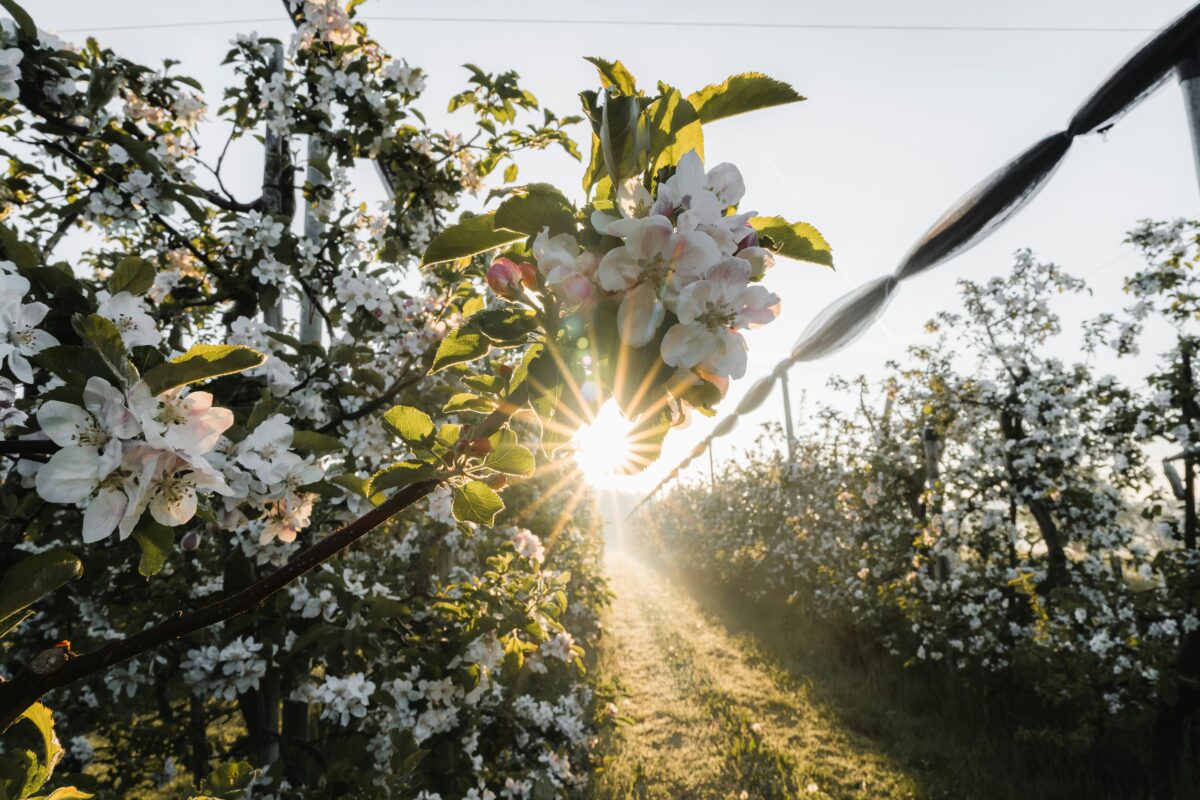Researchers from the University of Goettingen in Germany and the Copenhagen Business School in Denmark have conducted a discrete choice experiment (DCE) to investigate if consumers have a willingness to pay (WTP) for apples produced in agrivoltaic facilities.
DCE is a quantitative methodology that argues that individuals make trade-offs when choosing an alternative to a product or a service. It is commonly used to explain or predict a choice from a set of two or more discrete alternatives.
The group surveyed 1,055 respondents, with the satisfaction index including attributes such as organic farming, green electricity, plastic usage, pesticide usage, water usage, origin and price.
“In the sample, 13.7% of participants stated to rarely purchase apples, 38.9% seldom, 38.0% often, and 9.4% very often,” the group explained. “Nearly one-third (67.3%) had not heard about agrivoltaics before, and 76.9% of participants would buy fruits from the agrivoltaic facility. Only 2% refused to buy fruits from agrivoltaics.”
The survey also showed that the favored attribute was organic farming at 31.78%, followed by green electricity (31.40%), pesticide usage (29.63%), origin (29.54%), plastic usage (26.99%), water usage (26.23%), and price (25.0%).
“The highest WTP was obtained for ‘produced in Germany’ (€0.54), followed by ‘with reduced plastic usage’ (€0.43) and ’with production of green electricity’ (€0.40),” the scientists highlighted. “As the utility for the level ‘produced regionally’ was negative, the WTP also showed a negative value.”
They concluded that consumers derive additional utility from the levels of each attribute associated with agrivoltaics.
Their findings can be found in the paper “Consumer preferences and willingness to pay for apples from agrivoltaics,” which was recently published in the Journal of Cleaner Production.
In March, another research group at the University of Goettingen presented the results of a survey showing that 72.4% of the country’s farmers are considering the deployment of an agrivoltaic project. Among the main factors behind this choice, the researchers identified the additional source of income coming from solar power generation and the perceived usefulness of the technology.
This content is protected by copyright and may not be reused. If you want to cooperate with us and would like to reuse some of our content, please contact: editors@pv-magazine.com.




By submitting this form you agree to pv magazine using your data for the purposes of publishing your comment.
Your personal data will only be disclosed or otherwise transmitted to third parties for the purposes of spam filtering or if this is necessary for technical maintenance of the website. Any other transfer to third parties will not take place unless this is justified on the basis of applicable data protection regulations or if pv magazine is legally obliged to do so.
You may revoke this consent at any time with effect for the future, in which case your personal data will be deleted immediately. Otherwise, your data will be deleted if pv magazine has processed your request or the purpose of data storage is fulfilled.
Further information on data privacy can be found in our Data Protection Policy.